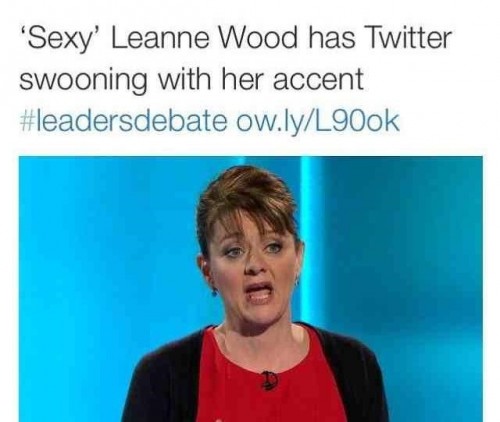Engender blog
Time to drive gender equality home with robust legislation
This blog first appeared in The National
It is now three months until the Scottish Parliament elections. Elections which, we hope, will see manifesto pledges made for women’s equality, and a record number of women MSPs elected. Engender will be working up until the election to call for parties to commit to our “20 for 2016” – 20 asks which we think could see real progress towards women’s equality in Scotland. We’ll be supporting groups across the country to hold “Gender Matters” hustings events, and we’ll be writing in The National about a different ask each week.
Scottish Green Party Elections - Female Co-Convener Q&A
On the eve of the close-of-poll for the Scottish Green Party internal elections, Engender put some questions around women's equality to the two contenders for the post of Female Co-Convener.
Rather than electing one leader, as many other political parties do, the Scottish Green Party has one male and one female co-convener. Up for the female co-convener position are incumbent Maggie Chapman (MC), former Edinburgh City Councillor and top list candidate in the North-East region for Holyrood 2016, and Zara Kitson (ZK), co-convener of the Glasgow and West of Scotland branch, and former co-convener of the Scottish Young Greens.
Guest Post: To succeed we must achieve equality
Guest post by Tasmina Ahmed-Sheikh, SNP candidate for Ochil and South Perthshire.
We need to do all we can to encourage more women to get involved in politics. Although we now have a respectable number of globally important political leaders who are women – I’d strongly argue we need more. And, in particular, women remain woefully underrepresented in the House of Commons.
It is hard enough raising your head above the parapet into politics as a woman, but as an Asian woman I feel it’s even more of a challenge. If privileged enough to be elected, I could be the first Scottish black and minority ethnic woman parliamentarian. It is quite incredible that this be the case in 2015.
Guest Post: A politics by and for women
Guest post by Sarah Beattie-Smith, Westminster Candidate for the Scottish Green Party in Edinburgh North and Leith
If this general election campaign will be remembered for one thing, it’s the role played by women and by Scotland in a political culture that was utterly unprepared to share the stage with either. Whether it’s a London based media waking up to the fact that Nicola Sturgeon exists (and that she happens to lead a country) or whether it’s a generation of voters seeing Green Party of England and Wales leader Natalie Bennett, Plaid Cymru leader Leanne Wood and Nicola Sturgeon breathing life into this election and challenging the austerity consensus, it’s clear that politics has changed. As Lesley Riddoch, put it recently, what we’re seeing is “the end of the Big Man and the start of the assertive woman as the preferred model for political authority”.
Guest Post: “Leanne Wood, I would!” (Helpful Twitter Guy, 2015)
Guest post by Harriet Protheroe-Davis, student activist and Women 50:50 Edinburgh branch organiser
Just when you think things are about to change the old creeping hand of tradition and misogyny comes and awakens you to the realities of women just not being good enough.

Downloads
 Engender Briefing: Pension Credit Entitlement Changes
From 15 May 2019, new changes will be introduced which will require couples where one partner has reached state pension age and one has not (‘mixed age couples’) to claim universal credit (UC) instead of Pension Credit.
Engender Briefing: Pension Credit Entitlement Changes
From 15 May 2019, new changes will be introduced which will require couples where one partner has reached state pension age and one has not (‘mixed age couples’) to claim universal credit (UC) instead of Pension Credit.
 Engender Parliamentary Briefing: Condemnation of Misogyny, Racism, Harassment and Sexism
Engender welcomes this Scottish Parliament Debate on Condemnation of Misogyny, Racism, Harassment and Sexism and the opportunity to raise awareness of the ways in which women in Scotland’s inequality contributes to gender-based violence.
Engender Parliamentary Briefing: Condemnation of Misogyny, Racism, Harassment and Sexism
Engender welcomes this Scottish Parliament Debate on Condemnation of Misogyny, Racism, Harassment and Sexism and the opportunity to raise awareness of the ways in which women in Scotland’s inequality contributes to gender-based violence.
 Gender Matters in Social Security: Individual Payments of Universal Credit
A paper calling on the Scottish Government to automatically split payments of Universal Credit between couples, once this power is devolved to the Scottish Parliament.
Gender Matters in Social Security: Individual Payments of Universal Credit
A paper calling on the Scottish Government to automatically split payments of Universal Credit between couples, once this power is devolved to the Scottish Parliament.
 Gender Matters Manifesto: Twenty for 2016
This manifesto sets out measures that, with political will, can be taken over the next parliamentary term in pursuit of these goals.
Gender Matters Manifesto: Twenty for 2016
This manifesto sets out measures that, with political will, can be taken over the next parliamentary term in pursuit of these goals.
 Scottish NGO Briefing for UN Special Rapporteur on Violence Against Women
Joint briefing paper for the UN Rapporteur on Violence Against Women.
Scottish NGO Briefing for UN Special Rapporteur on Violence Against Women
Joint briefing paper for the UN Rapporteur on Violence Against Women.

Newsletter
Sign up to receive our newsletter here:
Sign up to our mailing list
Receive key feminist updates direct to your inbox: